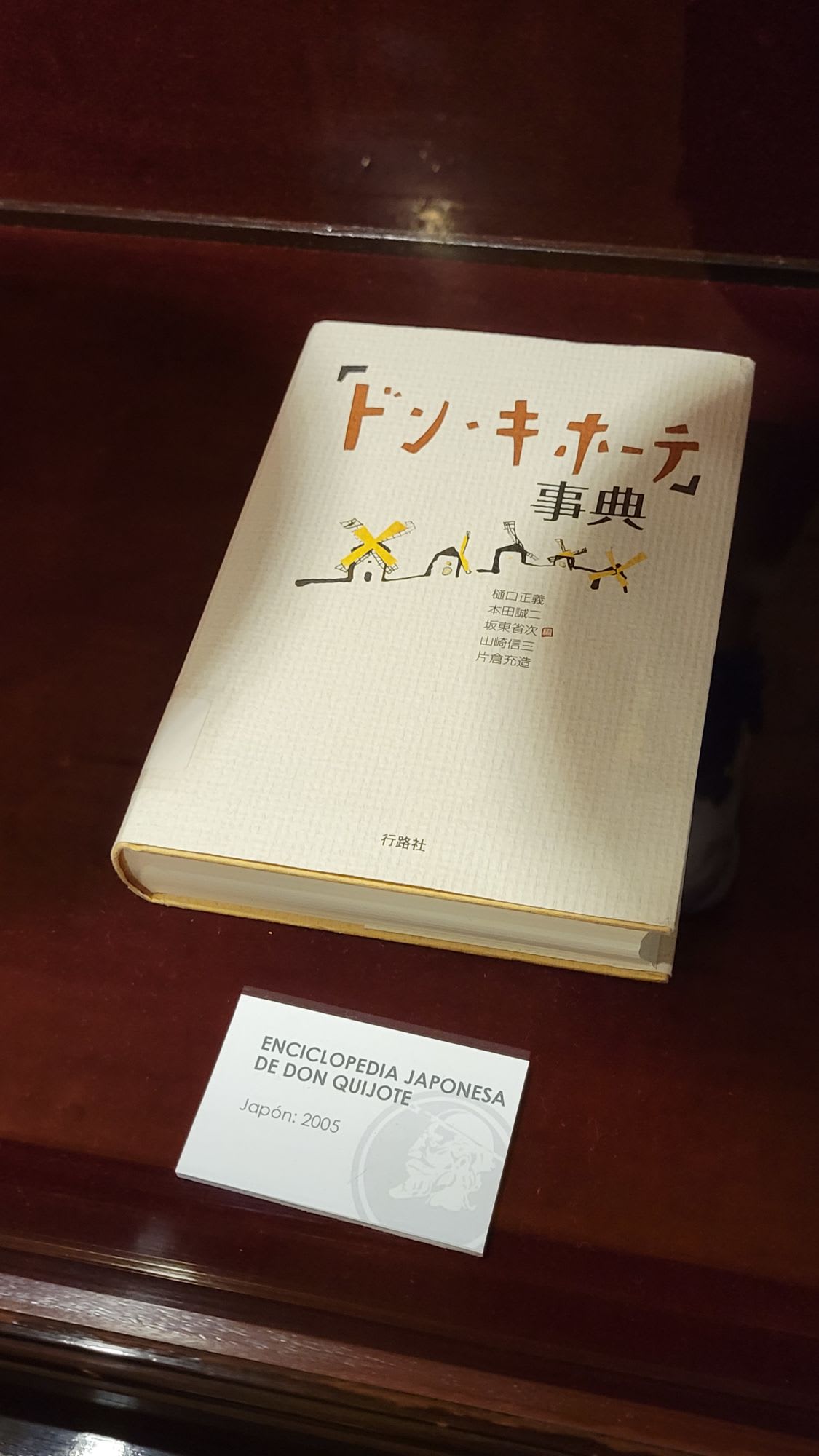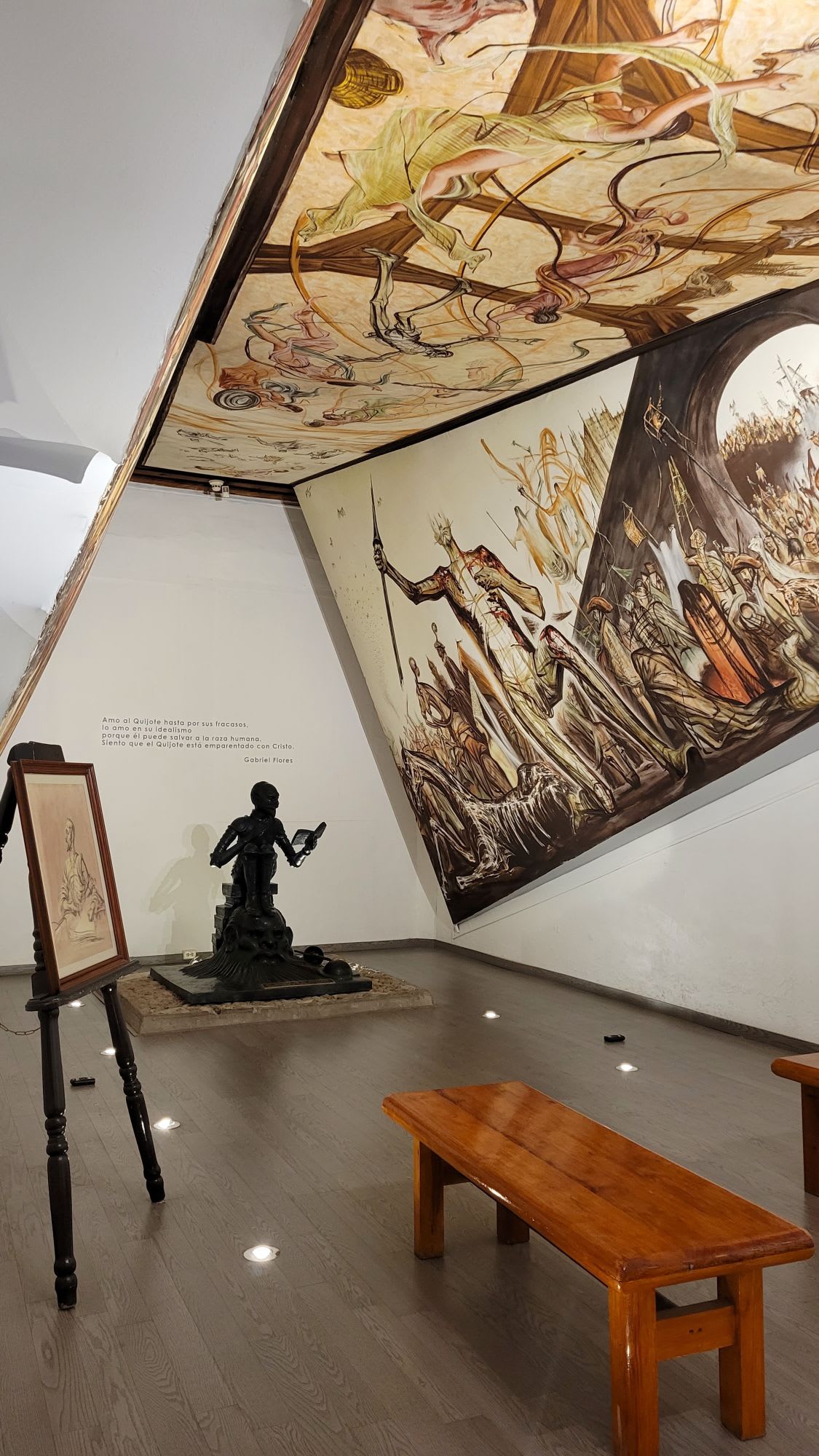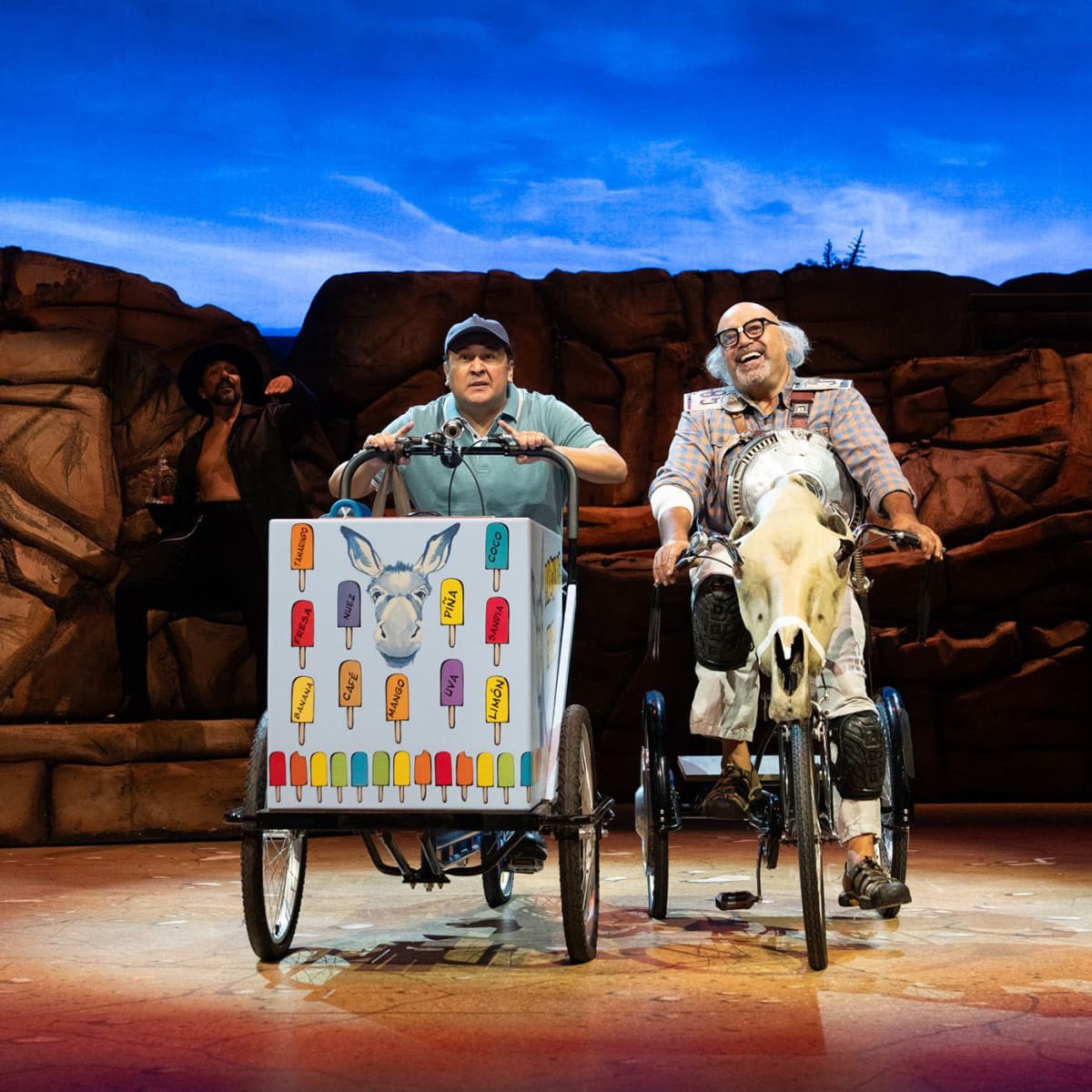EXPLORE
10 Surprising Facts I Learned at el Museo Iconográfico del Quijote
Don Quixote’s epic adventures have inspired not only generations of readers and writers, but also visual artists working in every medium. One of the ways his stories stay alive is through el Museo Iconográfico del Quijote in Guanajuato City, México, the world's largest and most important collection of art inspired by the character Don Quixote de la Mancha. Join Seattle Rep staffer Eliane Rodriguez on a journey through this one-of-a-kind collection, curated by Eulalio Ferrer Rodriguez.

Quick Note: The two spellings, "Don Quixote" and "Don Quijote," are both correct. "Don Quijote," as written by Miguel de Cervantes, is the original Spanish spelling. "Don Quixote" is the anglicized version of the name. Now that we have the basics down, let’s head over to el museo!

1) El Museo Iconográfico del Quijote opened its doors on November 6, 1987
It was founded by the president of Spain, Felipe González, together with the president of Mexico, Miguel de la Madrid, and museum founder Eulalio Ferrer Rodríguez as a gift to the people of Guanajuato and Mexico, the country that welcomed Eulalio when he fled his native Spain during the Spanish Civil War of the 1930s. This museum contains over a thousand pieces of art!
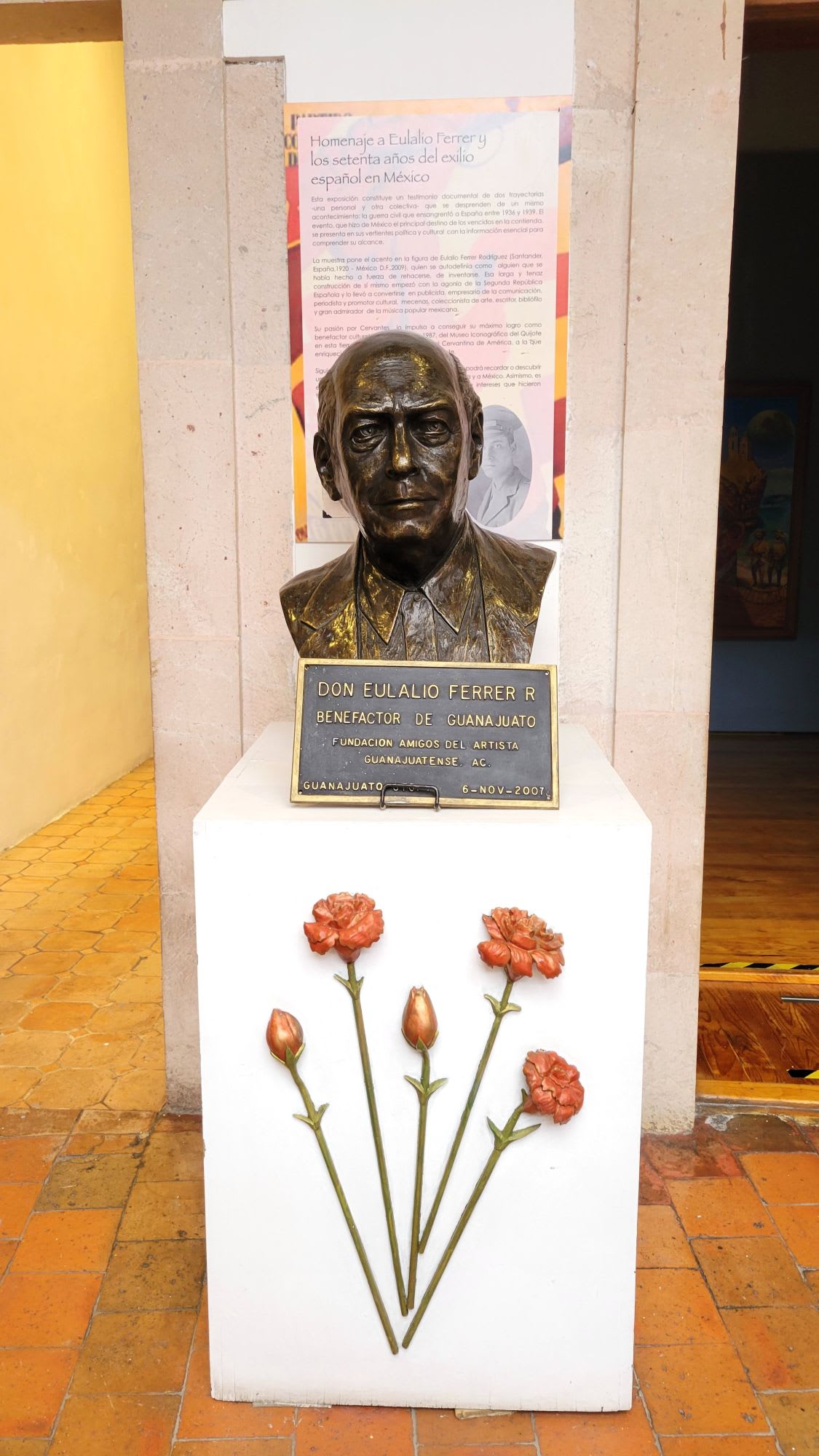
2) Don Quijote helped founder Eulalio Ferrer Rodríguez through some dark times
Eulalio joined the Spanish army when he was 14. When civil war erupted in Spain in 1936, he was the youngest army captain in the left-leaning Republican party, which was eventually toppled by the Nationalist party led by General Francisco Franco. In 1936, as a prisoner in a refugee camp in France, Eulalio traded his only possession, a pack of cigarettes, for a pocket-sized copy of the book, Don Quixote de la Mancha, now on view at the museum. It contains 650 pages.
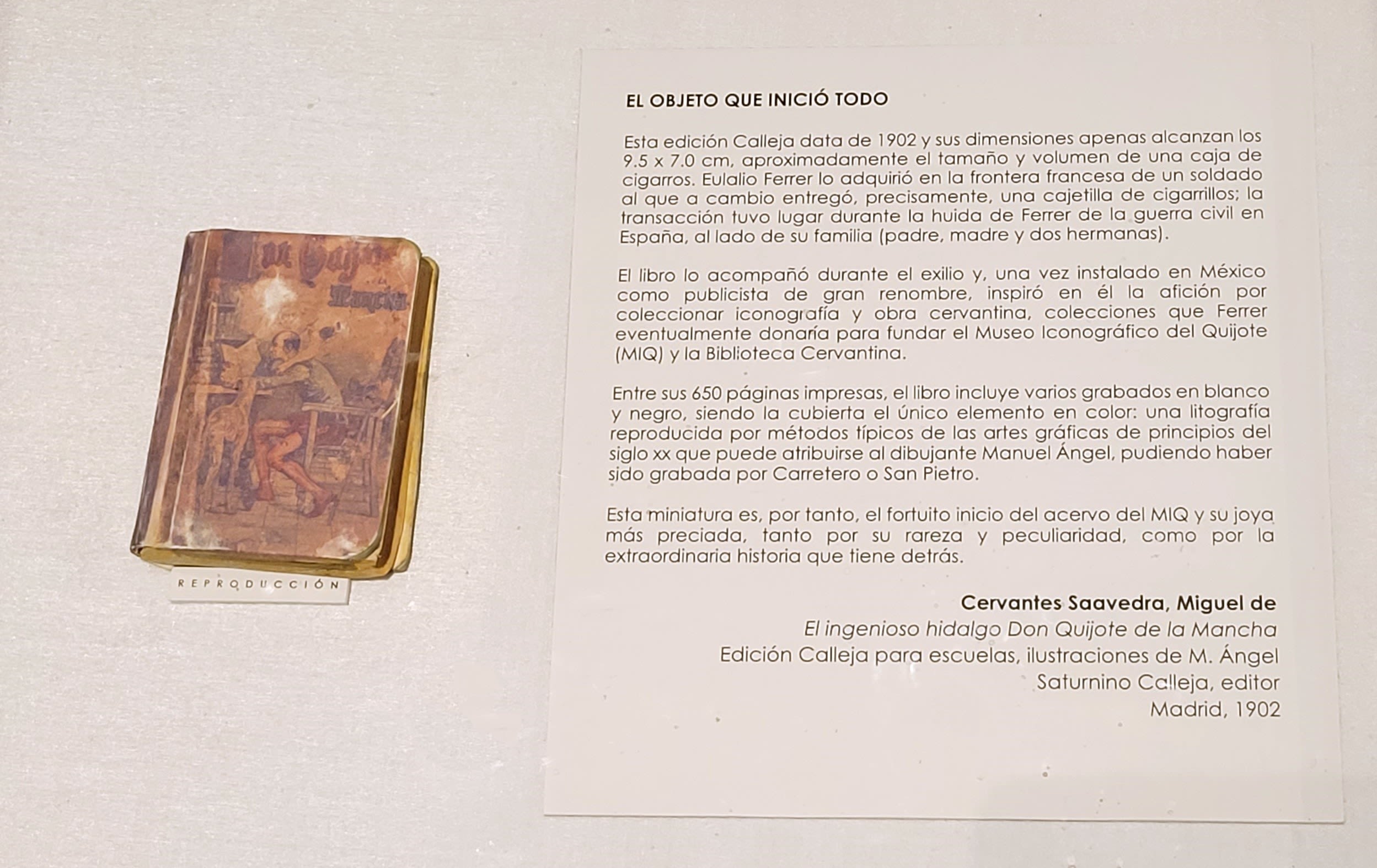
“Don Quixote’s insanity became an anchor for my own sanity in times of chaos and turmoil, and I read the book over and over again. I read it hundreds of times.”
—Eulalio Ferrer Rodríguez, written in his diary during his time as a political prisoner
Years later, during World War II, Eulalio found asylum in Mexico. As a lover of literature, philosophy, language, and art, Eulalio never forgot about the characters of Don Quixote or Sancho Panza. He began to collect works celebrating these literary legends: paintings, ceramics, sculptures, books, anything depicting Don Quixote. Learn more about Eulalio Ferrer Rodríguez here.

3) There are only a few places around the world containing original pages of Don Quijote de la Mancha, hand-written by Miguel de Cervantes
 |
 |
Original pages of the novel written in Cervantes' hand are displayed at el Museo Iconográfico del Quijote. More pages can be found at The Rosenbach Museum & Library in Philadelphia, Pennsylvania, and the General Archive of Simancas in Simancas, Spain.

4) Did you know the Museum holds an annual national visual arts contest?
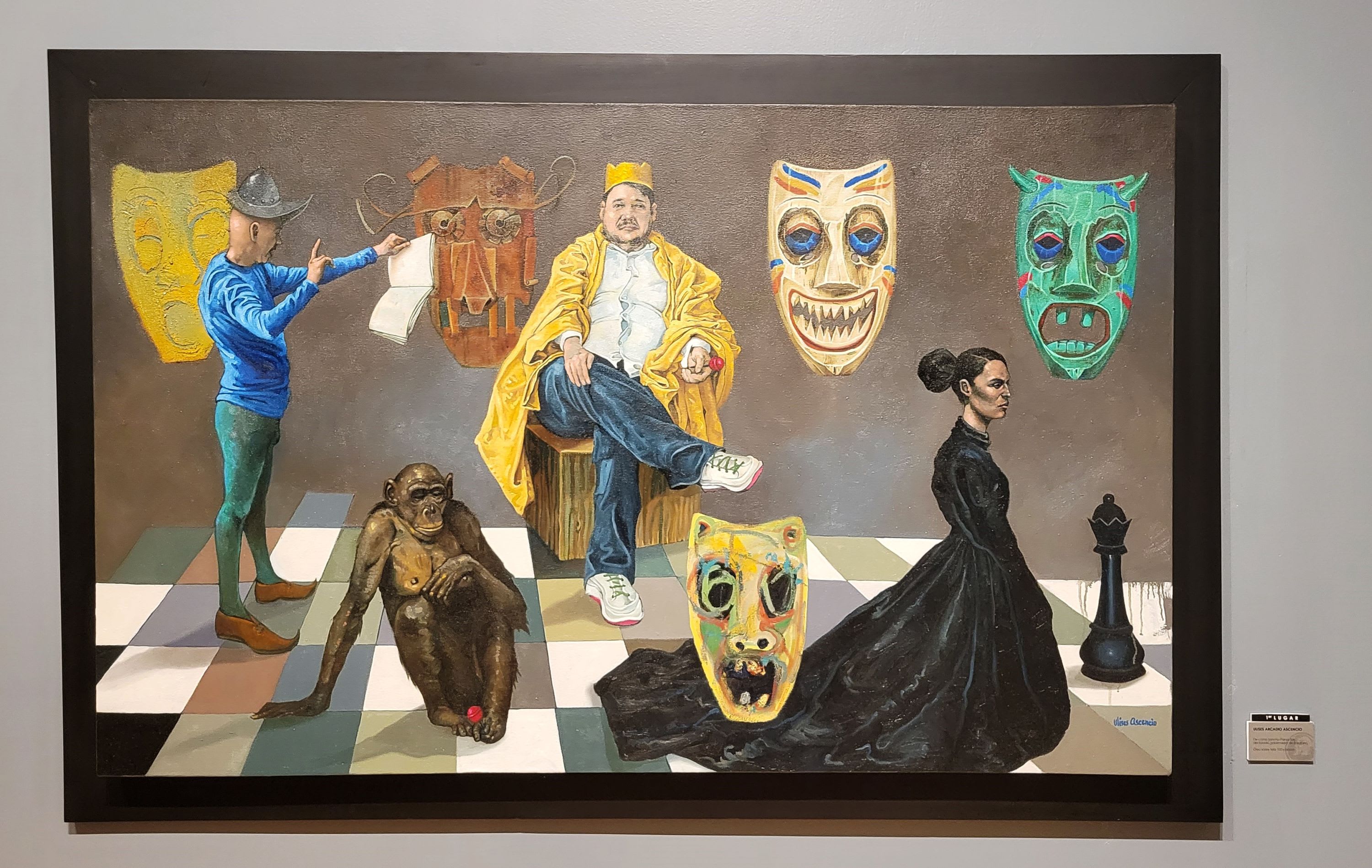
First Place Winner
De como Sancho Panza fue declarado gobernador de Barataria by Ulises Arcadio Ascencio
Oil over fabric
The theme of the XXVII National Contest of Visual Artists was to create a modern interpretation of the character Sancho Panza as Governor of the Island of Barataria.
5) The Museum highlights work by artists of all ages!
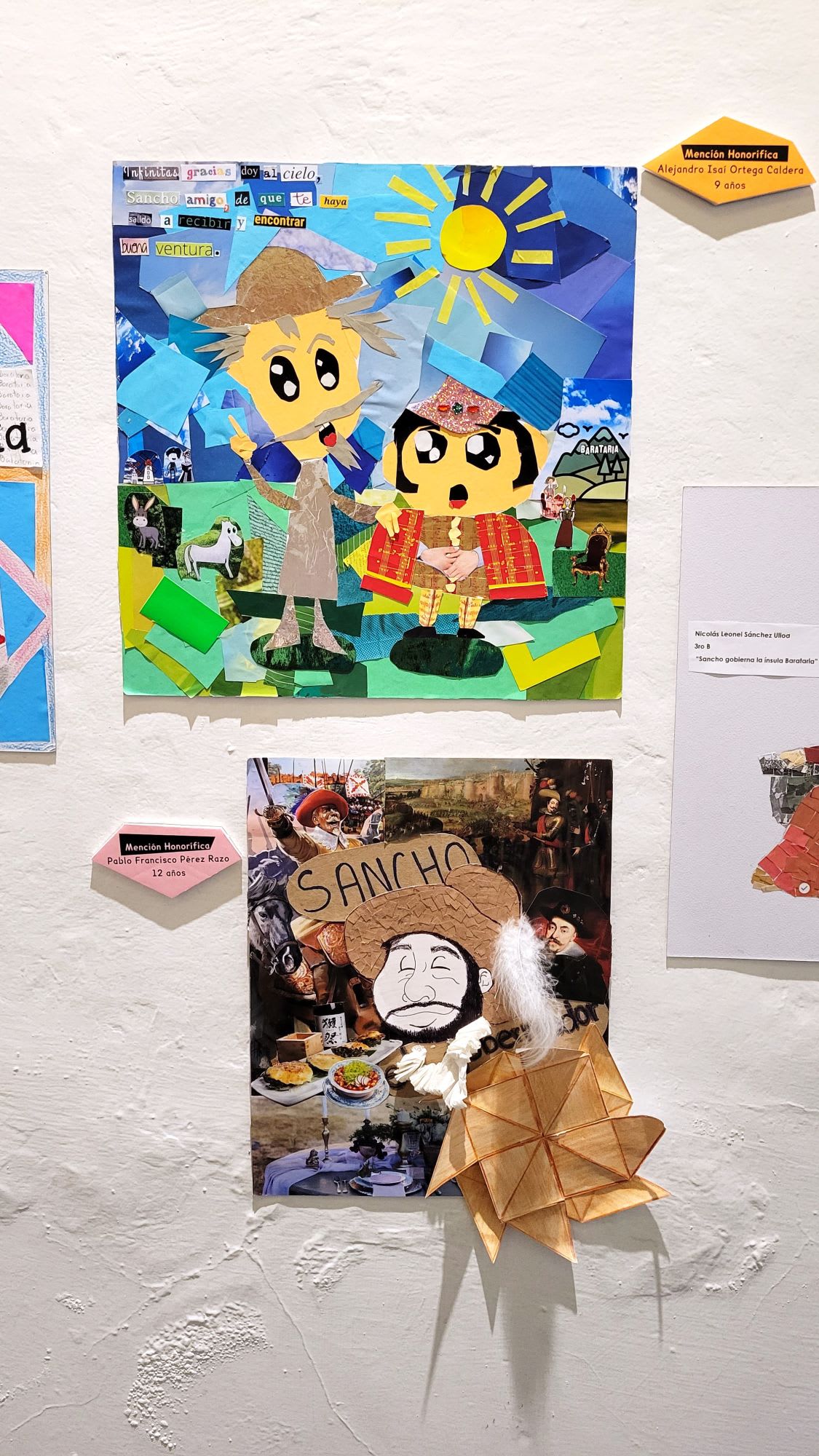
Top: Honorable Mention by Alejandro Isai Ortega Caldera, 9 years old
Bottom: Honorable Mention by Pablo Francisco Perez Razo, 12 years old
El Museo's national art contest also has a division for kids ages seven to twelve, giving youth a chance to exercise their creativity and relationship to literature in a playful manner.
6) Don Quijote has been translated into multiple languages including Thai, Japanese, Chinese, and Hindi
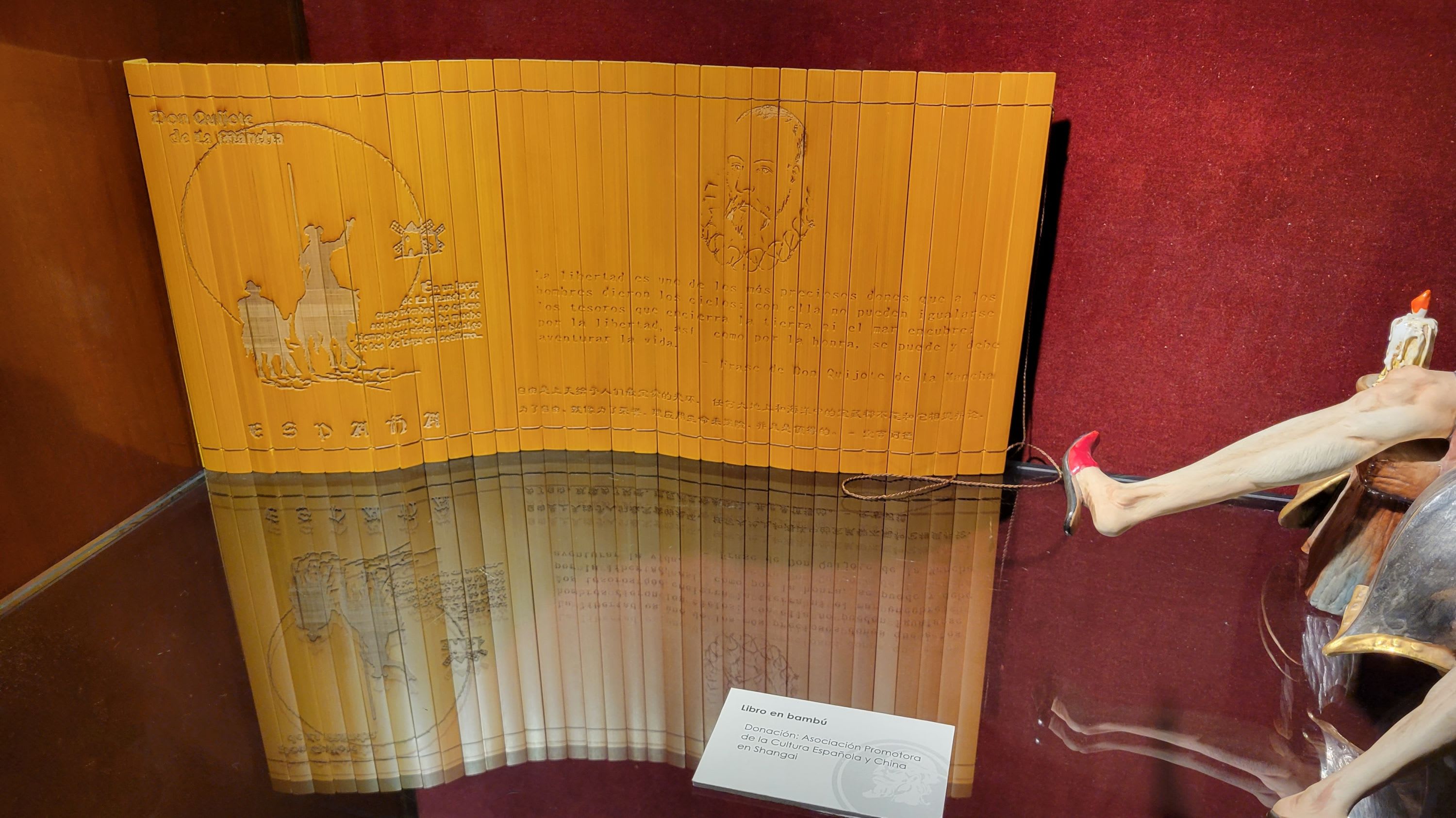
This piece is a book cover of Don Quixote in Chinese, written on bamboo.
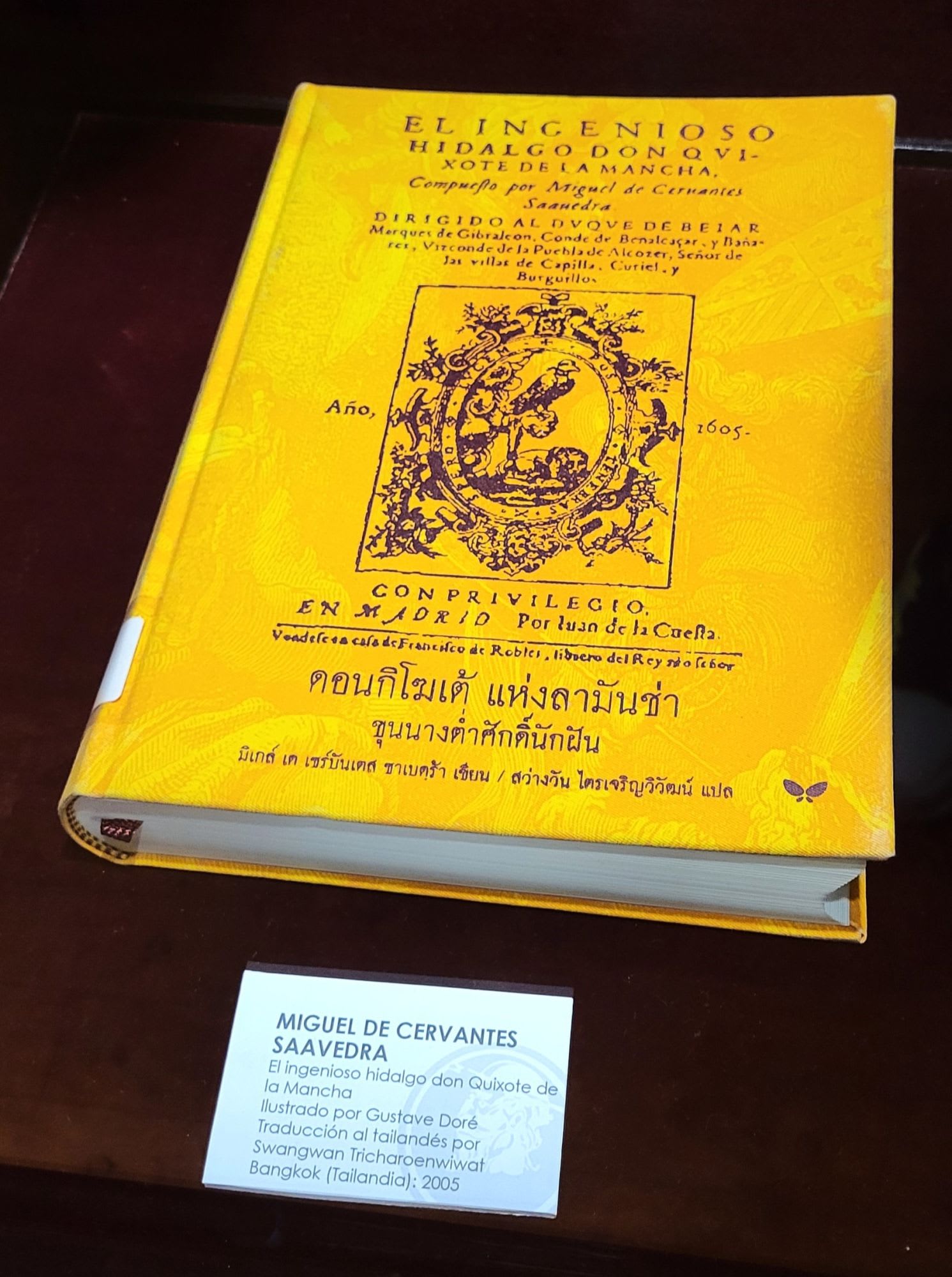 |
 |
|
7) Food is a very important element in Don Quijote

“An occasional stew, beef more often than lamb, hash most nights, eggs and rashers of bacon on Saturdays, lentils on Fridays, some squab added on Sundays—these consumed three-fourths of his income.”
- Don Quixote Volume 1, Chapter 1
The Museum features various paintings depicting Don Quixote and his horse Rocinante as thin and fatigued. Artists comment on food, hunger, and wealth through their interpretation of these characters. Plus, the Museum showcases a cookbook, La Cocina del Quijote by Lorenzo Díaz, written in 1993. This cookbook showcases real 16th-century recipes from Spain that would have been popular in Quixote's time.
8) It's all in the details!

Las Visiones del Quijote by Octavio Campo
Oil painting
If you ask the Museum’s head of security, Gerardo, he'll point out his favorite painting. As one steps closer to it, the intricate details showcase events of Don Quixote de la Mancha. Note Miguel de Cervantes’ ghost on the righthand side as he watches over his characters.
9) Immerse yourself in the Capilla Cervantina
La Trilogía Mural - Capilla Cervantina Cervantes y su obra by Gabriel Flores, 1978
Acrylic over fabric
The Capilla Cervantina is a massive work of art dominating an entire gallery. A story unfolds when you enter this space—one that makes you unsure whether to relish in it or fear the worst of humanity. This mural depicts Don Quixote and Sancho Panza elevating towards the heavens. One can lie down on the bench to look up at the mural on the ceiling.
 |
 |
10) Plaza Del Quijote

In 2011, the Iconographic Museum of Don Quixote decided to take a collection of sculptures to public spaces in the streets of Guanajuato City. Check out a quick tour for yourself! This new approach strengthens Guanajuato’s identity as the Cervantes Capital of the Americas. Near the museo is la Plaza del Quijote, a square where a statue of Don Quijote and Sancho Panza shows them valiantly looking toward the center of the city.

“Evocación Quijotesca” by Alfredo Zalce
Acrylic over fabric
Be part of Quixote’s legacy and adventures with Quixote Nuevo, a vibrant modern retelling of Don Quixote that blurs reality and fantasy in the Texas desert, on stage from Jan. 19 – Feb. 11, 2024. Cheers to the first show of the New Year!

“I hide in my favorite hiding place, Don Quijote. His imagination spurs ours, what we need so that we can see farther than these wire fences with the animal routine they impose on us. It is a reading that widens our judgement and makes us ride on fantasy. [...] Cervantes created his characters so that they remained alive, living in his readers.”
- Eulalio Ferrer Rodríguez, written in his diary during his time at a political concentration camp in France
Photos by Eliane Rodriguez and Francisco Rodriguez-Ruiz

